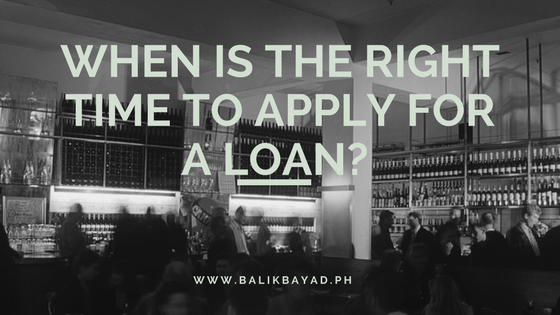In a previous post, we shared what non-collateral loan is and why this type of loan can be beneficial for you, especially if you don’t have assets under your name. On the other hand, there is another type of loan that you will come across and it goes by the name collateral loan.
What is this about? How is it different from non-collateral loan?
Keep reading to find out.
Collateral loan, defined
From the name itself, collateral loan is a type of loan that is secured by an asset, preferably under your name, the borrower. This means the loan is guaranteed by an asset and will be transferred in the name of the lender in case you are unable to pay after several demands. This way, the lender is assured that no matter what happens, the loan obligation will be paid and will not lose the entire amount borrowed.
Assets you can use as collateral include property or real estate, vehicle, jewelry, cash account such as time deposit, collectible items, or investment like stocks or mutual funds.
Why apply for a collateral loan?
You are at risk of losing your property. Why should you go for this type of loan?
First, keep in mind that you will only (possibly) lose the property or any asset you used as a collateral IF you failed to pay your loan obligation. Before that happens, lenders often give borrowers a chance to pay for loan by coming up with an arrangement that is beneficial for both parties.
In case you are still unable to pay despite the arrangement and (the many) chances given to you to be able to pay, then that’s the time when lenders will go after the secured property to cover for the loan. This can be a tedious process, which is why foreclosing an asset is often the last resort.
Nonetheless, the good thing about collateral loan is that you can get a loan regardless of having a bad credit. Your credit score is a crucial factor in determining your credit-worthiness, but lenders are willing to bend the rules and approve your loan application IF you can present any asset for collateral.
Interest rate is often lower compared to non-collateral loan because in collateral loan, there is a security attached to the obligation. There is no better assurance than an asset itself; hence lower interest rate.
What if the value of the collateral is lower than the loan amount?
Unfortunately, you still have to pay for the entire loan amount. For instance, your loan value is P100,000 and the value of the asset you used as collateral dropped to P80,000. You still need to pay the remaining P20,000 plus interest charges up to the day of payment to fulfill the entire loan obligation.
Does Balikbayad offer collateral loan?
Apparently, we don’t, although we require you to have a co-maker (who receives remittances from you) when applying for a loan with us. We want to keep loan application and processing simple and straightforward by not asking too much documents from you.
What are you waiting for? Send your loan application now and let us be your partner to help you achieve financial freedom.

